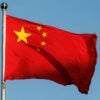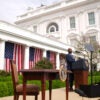Internet outreach is the hottest new item in the U.S. government’s array of public diplomacy tools. While international broadcasting is in disarray, the focus has moved to Internet outreach through social networking and websites to promote America and its allies abroad. The Internet can be a great tool for the advancement of freedom and the empowerment of individuals. Yet it is not immune to the designs of state actors, nor does it exist in a policy vacuum.
After having tangled with China over its internet censorship policy, Secretary of State Hillary Clinton on January 21 spoke at the Newseum and hailed the potential of the Internet to connect individuals far and wide. “The spread of information networks is forming a new nervous system for our planet. There are more ways to spread more ideas to more people than at any moment in history,” she said. “To meet these 21st century challenges, we need to use the tools, the new 21st century statecraft. And we’ve begun to do that. We have seen the possibilities of what can happen when ordinary citizens are empowered by Twitter and Facebook to organize political movements, or simply exchange ideas and information. So we find ourselves living at a moment in human history when we have the potential to engage in these new and innovative forms of diplomacy and to also use them to help individuals be empowered for their own development.”
According to the Associated Press, the U.S. Embassy in Baghdad is entering the Facebook scene, which already includes some 170 U.S. embassies around the world. Also on Thursday, the U.S. embassy in Baghdad launched own Facebook page, hoping to reach Iraqis who want to be “friends” with the United States and learn about American culture and society. The page includes an “English Language Corner,” with the worthy goal of spreading knowledge of the English language. This has been a traditional mission of the U.S. government’s broadcasting services, which they have been doing less and less as they have been faced with budgetary constraints. There is undeniably room for improvement in U.S. outreach in Iraq. The U.S. embassy’s homepage ranks so far down on the list of visited websites tracked by www.alexa.com that it doesn’t even register.
The Daily Signal depends on the support of readers like you. Donate now
The State Department also hopes that the Facebook initiative will help boost Iraq’s web culture. In recent months, writes AP, the State Department has brought over top executives from Google, Twitter, AT&T and other IT companies to Baghdad, and the U.S. embassy has also helped the Iraqi government set up its own YouTube channel. Whether the channel can persuade the Iraqi people that their government is as committed to openness and transparency as promised will of course depend more on the government’s actions than on the qualities of its videos.
As exciting as public diplomacy 2.0 can be, it is critically important that its weaknesses and limitations are taking into account – in order that other tools of public diplomacy are not neglected. What Hillary Clinton calls this new global “nervous system” is highly sensitive to government interference and state control as the case of China’s dispute with Google demonstrates. And of course, Internet access itself is much scarcer in most of the regions of the world that the U.S. government seeks to reach than it is here in the United States. Nevertheless, this is the basket in which the State Department is currently placing its public diplomacy eggs. The good news is that we can all tune in and see how the State Department is spending our tax payer dollars.
You can follow the Heritage Foundation on Facebook here and Twitter here





























